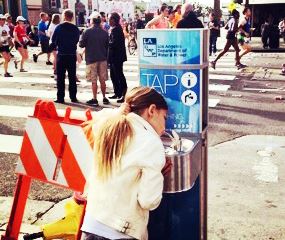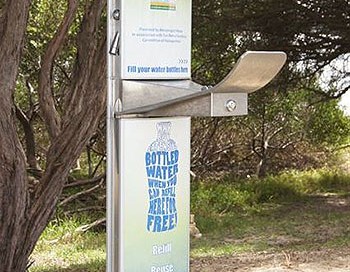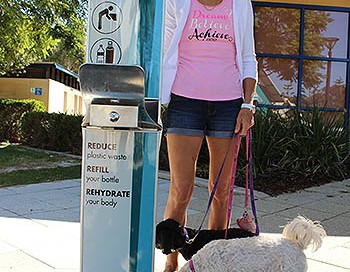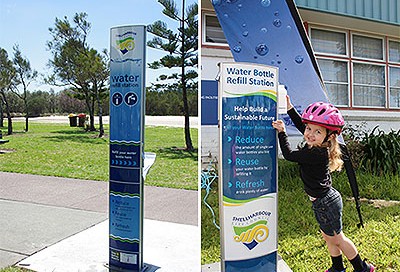Eliminating Plastic Bottle Waste
Linda Mathieson
June 25, 2014
Billions of disposable plastic bottles are sold around the world each year and most of them end up in landfill, oceans and waterways. This is a major environmental disaster in itself, not to mention the millions of barrels of oil used in the manufacture of plastic bottles.
It is time to encourage people to make the right choice. Stop buying disposable bottles and carry a reusable bottle. It sounds like, and it is an easy solution but getting the message across it not that easy. With so many options of plastic bottled water readily available to buy, one forgets the negative impact that purchase is having on our environment.
Whilst more and more council, parks, schools, universities and local communities are installing Water Refill Stations and Drinking Fountains within their precincts, there are still areas where free, clean drinking water is not available.
Shopping centres and malls are slow on the uptake to supply free drinking water to customers, probably due to the fast food outlets wanting to continue selling bottled drinks at exorbitant prices and let’s be honest; nobody wants to refill their bottle in the public restrooms.
Fast food outlets should be encouraged to join the fight against plastic waste as part of their Corporate Social Responsibility. It would be a huge step in the right direction for our environment if the large fast food chains started promoting free drinking water whilst removing plastic bottled water from their fridges. To ensure no loss of revenue, they could sell branded stainless steel reusable bottles.
Think of the impact this could have on the environment and how 10 years down the track, it would be considered normal to always carry a reusable water bottle. We would have a new generation totally unaware that drinking water used to be available for sale in plastic disposable bottles.
More and more outdoor event organisers are encouraging the use of reusable stainless steel bottles. This alone has a huge impact on the environment and also means less mess at the events conclusion.
The UK Glastonbury Festival, held in June 2014, is giving away 2000 stainless steel reusable bottles to road crew and band members and will have them for sale for festival goers. The 140,000 ticket holders are being encouraged to buy or bring a reusable bottle to refill at one of the 400 drinking water points scattered around the venue. This is a great initiative and encourages other event organisers to do the same. Read more…
In an effort to build a healthy environment and lifestyle, it is time to get rid of the disposable plastic water bottle.





